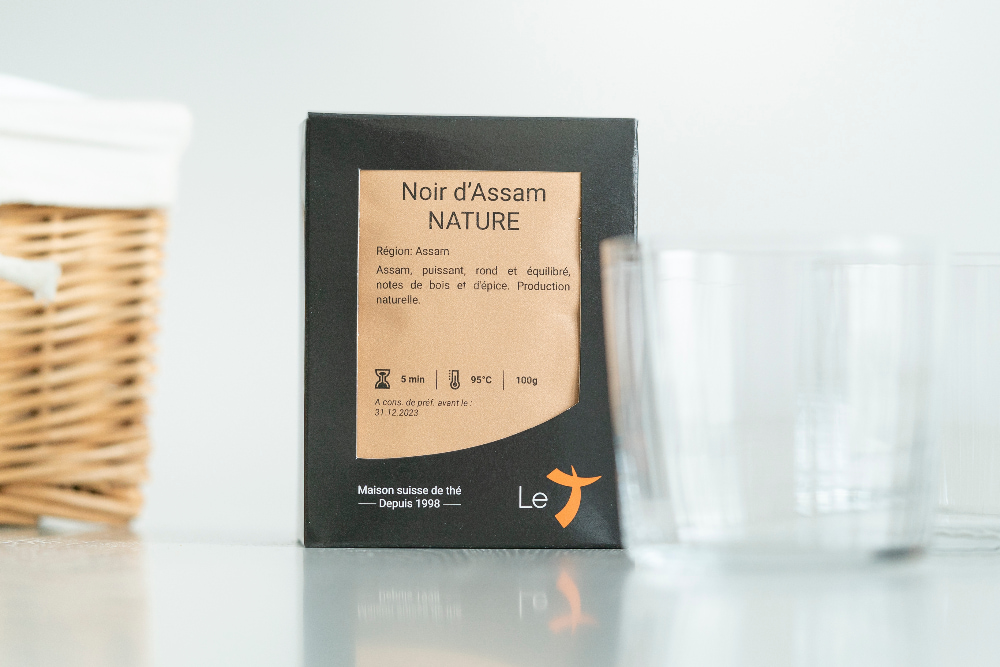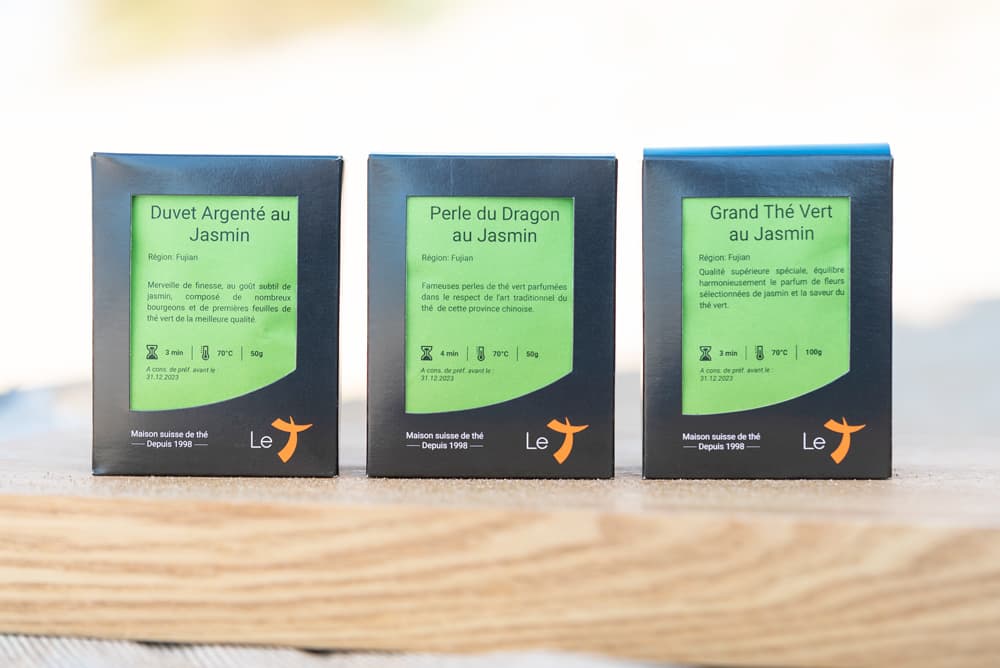Everything You Need to Know About Black Tea
Black tea, known as red tea in China, is a fully oxidized tea, unlike green teas that are not oxidized or oolong teas that are partially oxidized. This oxidation gives the tea its round, assertive taste and an infusion ranging in color from dark brown to yellow-orange.
Black tea is the most popular type of tea in the West, likely due to its pronounced flavor and long shelf life. The category of black tea is diverse, encompassing several popular varieties such as English Breakfast teas, Darjeeling, or Earl Grey.
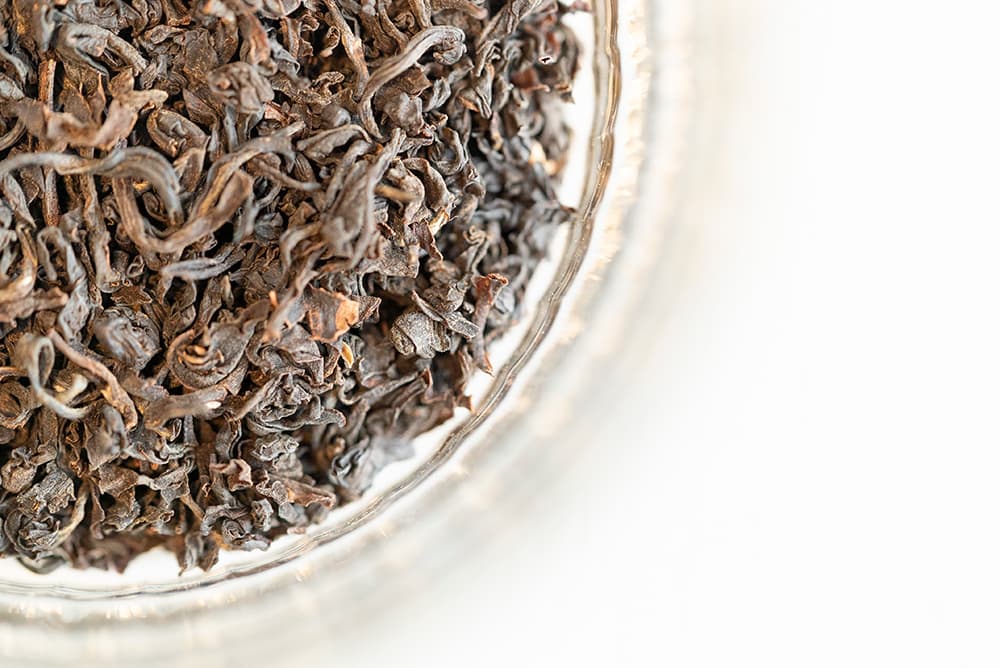
The strong taste of its infusion, its amber color, and robustness don't hinder its wide range of flavors. These depend on the product's quality, origin, and manufacturing process. The selection of terminal leaves (bud, first and second leaves) and the harvesting season define its basic classification.
There are two manufacturing processes that determine the appearance and taste of the infusion. The most refined and careful process is called orthodox manufacturing. The second process is simpler and more economical, the CTC (Crush, Tear, Curl) manufacturing. Almost all our black teas come from the orthodox method and the selection of the best leaves.
Orthodox manufacturing yields leaves of different sizes, ranging from 'whole' leaves (or slightly broken depending on the type) to leaf dust. On the other hand, CTC manufacturing only produces very small pieces, never whole leaves.
The size of the leaves/pieces determines the strength and aromatic degree of the infusion. Broken leaves are intentionally chosen to allow a single infusion to quickly release its flavors. This characteristic prevents the use of the same leaves for a second infusion. This is the case, notably, with our English Breakfast BOP Western High-Grown Ceylon. This very high-quality tea is deliberately chosen in broken leaves to give a powerful and robust infusion.
Other, rarer black teas keep their whole leaves. Their fragrances and flavors gain subtlety and complexity. This is the case with our selection of Chinese black teas, for example.
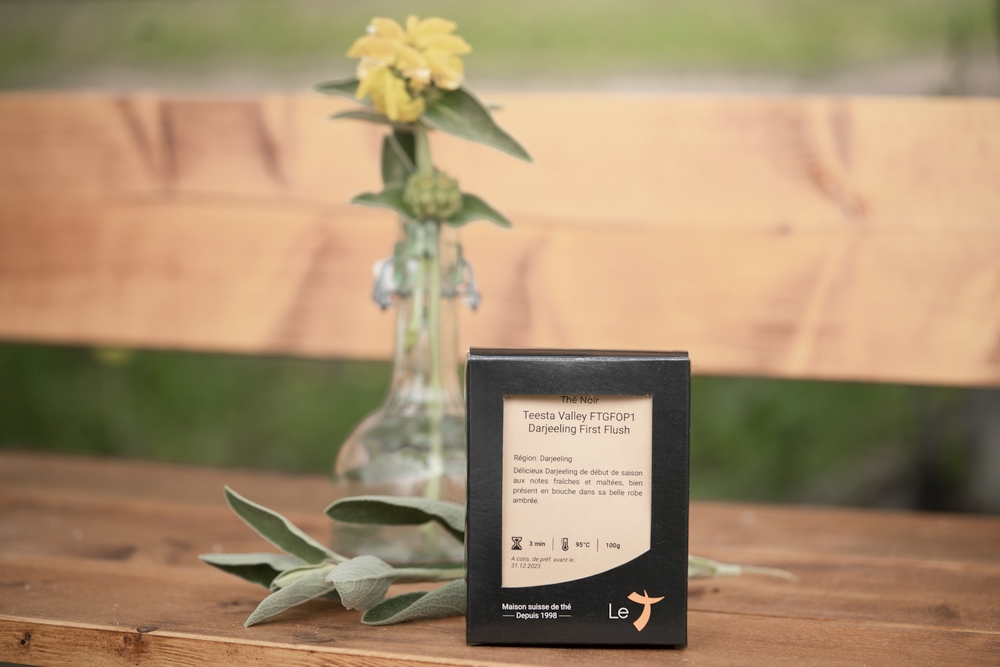
Origin of Black Teas
The best black teas mainly come from India, Sri Lanka (Ceylon), China, Nepal, and Japan. Many other countries also produce them (Vietnam, Kenya, Rwanda, etc.). The notes of black tea are often woody, spicy, chocolatey, sometimes malty (especially good Darjeelings).
Assam Black Tea from India: Coming from the world's largest tea-producing region, this tea is bold, malty, woody, and lively; when infused strong and robust, it's ideal combined with milk and sugar. Our Assam black teas.
Darjeeling Black Tea from India: The mountainous region of Darjeeling produces a highly aromatic, delicate, fruity, floral, and light tea. The season it's cultivated influences the tea's flavor. A Darjeeling black tea harvested during the first spring harvest (First Flush) will have a very aromatic, green, and light flavor, while a tea harvested a little later in the year (Second Flush) will be mild, fruity, and more amber. Our Darjeeling black teas.
Ceylon Black Tea from Sri Lanka: This tea varies according to its origin but is generally bold, strong, rich, and has notes of chocolate or spices. Teas generally called "English Breakfast" are usually based on Ceylon. Like Assam teas, Ceylons can be served with milk and sugar for those who prefer it. Our Ceylon black teas.
Keemun Black Tea from China: Fruity and floral, this tea can also have aromas of pine, tobacco, and dark chocolate, depending on the variety. Its flavor is sweet and velvety. We offer a great vintage from the region: Grand Keemun from China.
Yunnan Black Tea from China: Grown at high altitudes in the Yunnan province, this tea evokes the flavors of chocolate and malt, sometimes with spicy notes. Our Grand Yunnan black tea is also characterized by a slight smoky note, very pleasant on the palate.
Benifuki Black Tea from Japan: The Japanese are known for producing wonderful green teas rather than black teas. However, there are a few rare, excellent-quality Japanese black teas, such as our Benifuki black tea. A great vintage, deep and woody with chocolate notes.
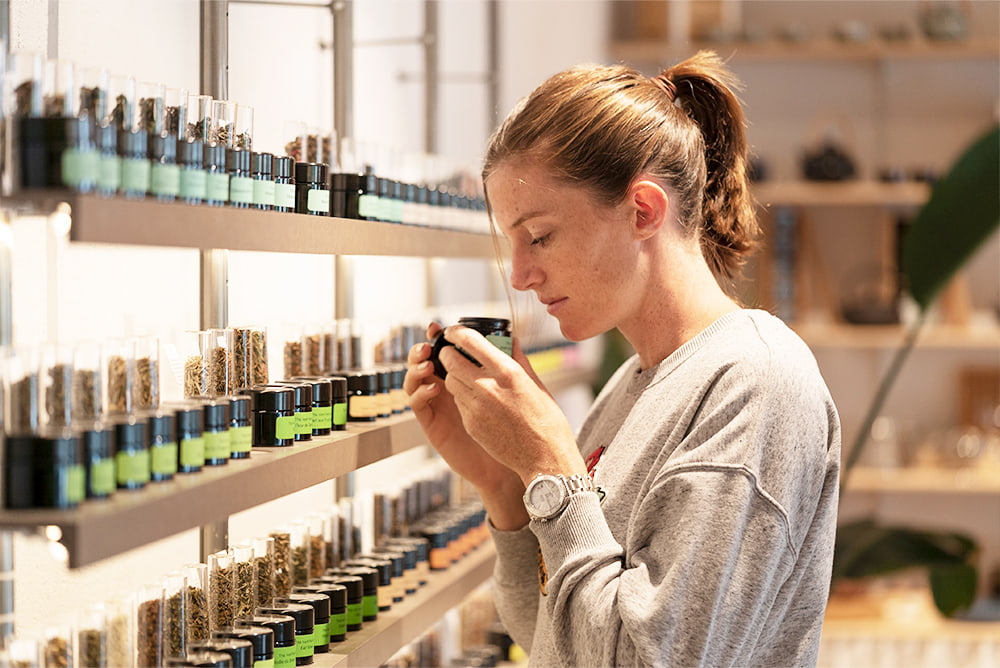
Which Black Tea to Choose? Here are some suggestions:
1) Si vous voulez un thé noir robuste et riche en caféine, type English Breakfast
Robust and highly caffeinated black teas are an excellent choice if you're looking for a morning tea. They also make an excellent base for preparing "latte" tea. Indian black teas tend to be more robust than Chinese black teas. Here are our top picks for highly caffeinated black teas.
2) If you want a natural, subtle, and moderately caffeinated black tea:
Chinese black teas are an excellent choice if you're looking for fine, round, and balanced black teas. Chinese black teas are usually produced from the camellia sinensis variety of tea, which has slightly less caffeine content than the Indian camellia assamica variety.
3) If you want a spicy black tea:
Black teas pair well with spices like ginger, cinnamon, and cloves. These blends are rich in flavors and comforting.
4) If you want a fruity black tea:
Fruity black teas are flavored with fruits like bergamot, peach, orange, mango, red fruits, etc. These teas are delicious hot and also make excellent iced teas.
5) If you want a bergamot-flavored black tea:
Earl Grey is one of the most famous flavored teas in the world. Bergamot is a citrus fruit whose appearance and flavor lie somewhere between orange and lemon, with a hint of grapefruit and lime.
6) If you want a malty black tea:
Darjeelings stand out for their characteristic malty taste. Less known but quite remarkable, teas from Nepal come from a similar terroir and will delight Darjeeling enthusiasts.
7) If you want a smoked black tea:
Black teas can also be smoked. These unusual teas are perfect for brunch.
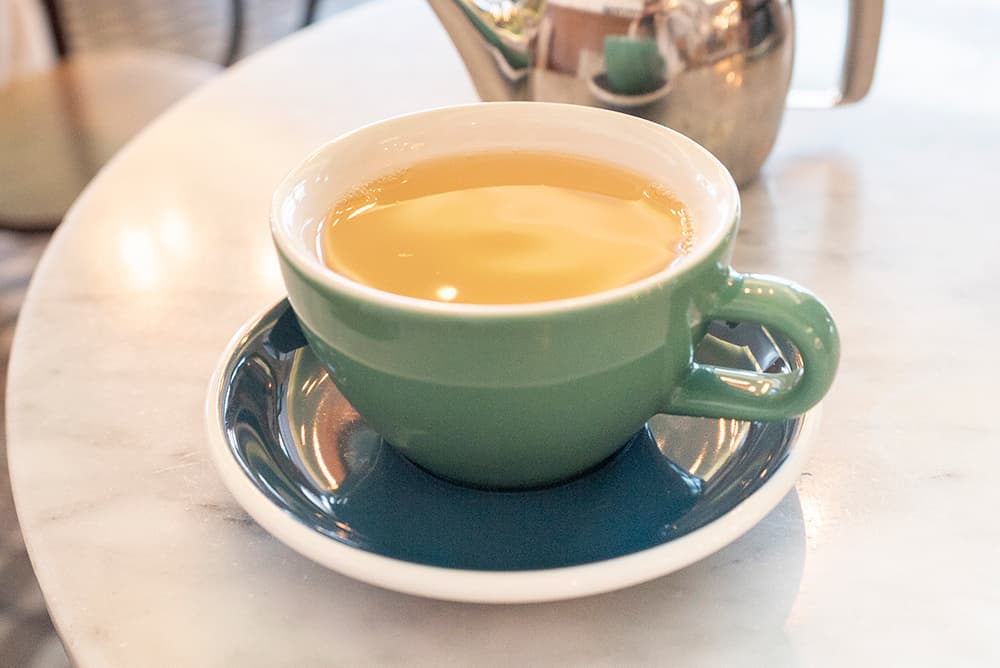
How to Brew Black Tea?
Of all types of tea, black tea is generally the easiest to brew. Use about a teaspoon of tea leaves per cup of hot water. Use boiling water to extract all the flavors from your tea. Place the leaves in boiling water and let them infuse for between 3 and 5 minutes depending on the tea. Our packaging always precisely indicates the recommended infusion time. Filter the tea leaves and enjoy!
Black teas from Ceylon, Assam, or Chai can be accompanied by milk and sugar for those who prefer it.
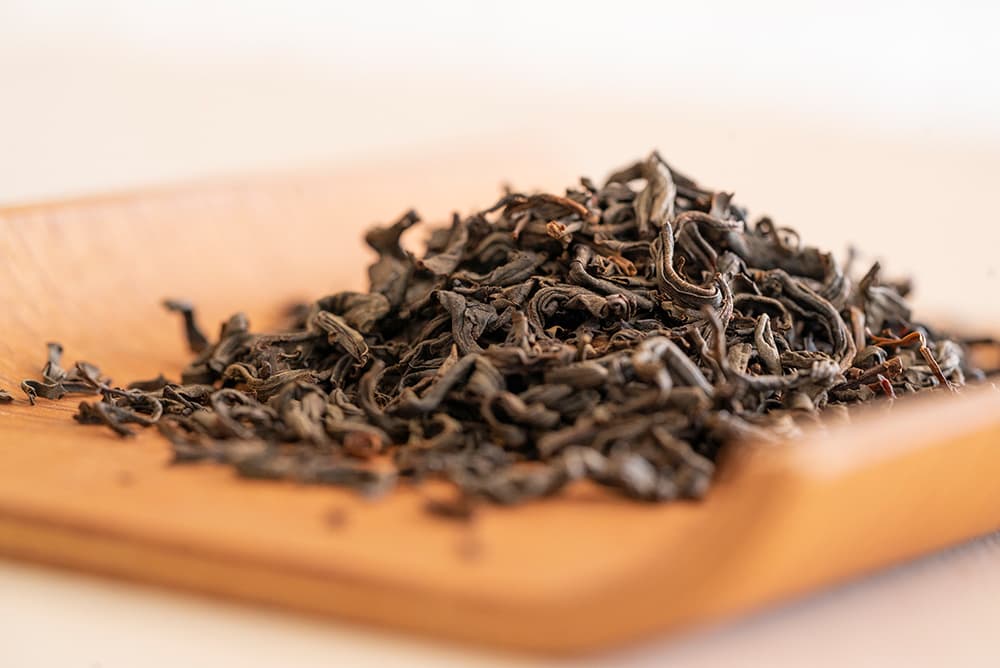
What are the health benefits of black tea?
Black tea appears to reduce the risk of mortality (all causes combined) by 12%, according to a large-scale study conducted by the United Nations.
The benefits of black tea likely come from the polyphenols it contains. These compounds, more abundant in green tea, help reduce blood pressure, have anticancer properties, and are beneficial against diabetes.
Another study suggests that both black and green tea seem to combat depression in seniors.
Black tea contains caffeine, making it a possible alternative to coffee.

 English
English  Français
Français